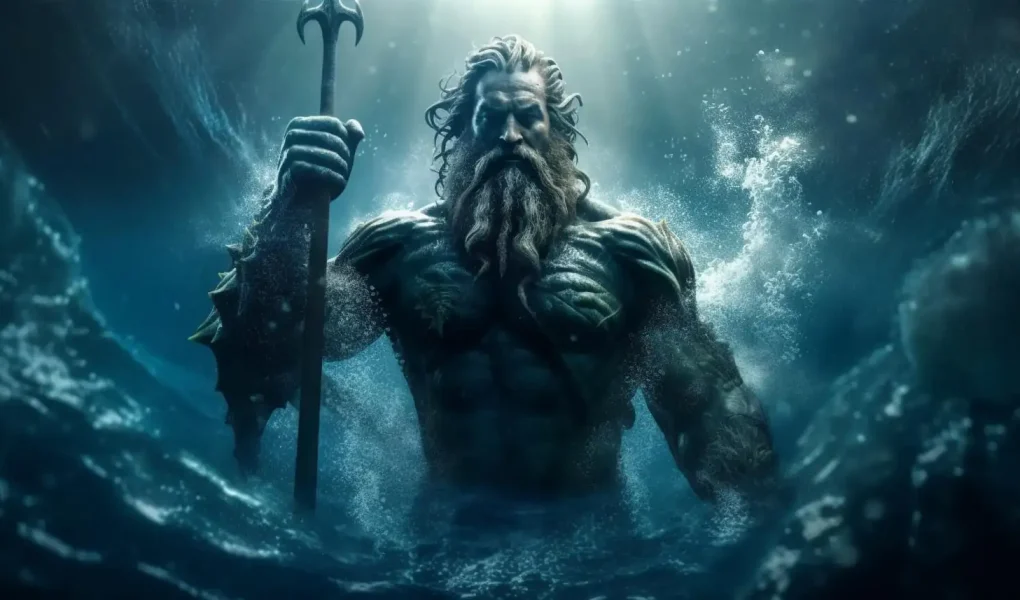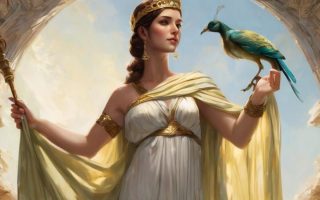lettersforvivian.org – In the rich tapestry of Greek mythology, Poseidon stands as one of the most formidable figures, embodying the power and unpredictability of the sea. As one of the twelve Olympian gods, Poseidon’s domain extended beyond the ocean depths to include earthquakes, storms, and horses, making him a deity of immense influence and reverence. This article delves into the myths, attributes, and significance of Poseidon, offering a glimpse into the ancient Greeks’ complex relationship with the natural world.
The Lineage and Birth of Poseidon
Poseidon was the son of the Titans Cronus and Rhea, born into the tumultuous era of the Titanomachy, the war between the Titans and the Olympians. To prevent his children from overthrowing him, Cronus swallowed each of them at birth. However, when Zeus, Poseidon’s elder brother, was born, Rhea managed to save him by tricking Cronus. Zeus grew up to defeat Cronus and release his siblings, including Poseidon, from his father’s stomach. This act marked the beginning of the Olympian rule, with Zeus, Poseidon, and their brother Hades dividing the world among themselves. Poseidon chose the sea as his domain, becoming its undisputed ruler.
The Attributes and Symbols of Poseidon
Poseidon was often depicted as a mature man with a sturdy build, a thick beard, and long hair, embodying the strength and majesty of the sea. His primary attribute was the trident, a three-pronged spear that symbolized his power over the oceans. With this mighty weapon, Poseidon could stir up waves, cause earthquakes, and even create new landmasses. The horse was also closely associated with Poseidon, as he was believed to have created the first horse by striking a rock with his trident.
Myths and Legends
Poseidon’s myths are numerous and varied, reflecting his complex character as both a benevolent protector and a fearsome force of nature. One of the most famous tales involves the city of Athens. Poseidon and Athena both sought to become the patron deity of the city. To decide, they agreed that each would offer the Athenians a gift, and the people would choose their favorite. Poseidon struck the ground with his trident, creating a saltwater spring, while Athena planted an olive tree. The Athenians chose Athena’s gift, and the city was named after her, much to Poseidon’s displeasure.
Another notable myth is that of Poseidon and the hero Odysseus. After Odysseus blinded Poseidon’s son, the Cyclops Polyphemus, during his journey home from the Trojan War, Poseidon sought vengeance. He unleashed his wrath upon Odysseus, prolonging his voyage and causing numerous hardships. This tale underscores Poseidon’s temperamental nature and his ability to wield his power with both generosity and fury.
Poseidon’s Significance
Poseidon’s significance in Greek mythology cannot be overstated. As the god of the sea, he was essential to the ancient Greeks, who were heavily dependent on the ocean for trade, travel, and sustenance. His temples were located near the sea, and sailors and fishermen often sought his favor through sacrifices and prayers before embarking on voyages. Poseidon’s myths also served as cautionary tales, reminding people of the sea’s unpredictable nature and the need to respect its power.
Conclusion
Poseidon, the God of the Sea, remains a captivating figure in Greek mythology, embodying the awe and respect the ancient Greeks held for the ocean. Through his myths, attributes, and symbols, Poseidon continues to fascinate and inspire, reminding us of the enduring power of the natural world and the complex emotions it evokes. Whether as a protector or a punisher, Poseidon’s legacy is a testament to the human fascination with the forces that shape our world.


